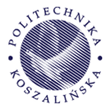The concept of culture shock is a prominent topic in the field of interpersonal communication, especially when it comes to cross-cultural encounters. As we know, it can be fascinating and confusing to experience new cultural settings. While culture shock is typically a temporary phenomenon, it is crucial to recognize that it can impact individuals from any cultural background and regardless of their level of experience or travel history. Culture shock manifests strongly among individuals like international students or those relocated. It surfaces as homesickness, helplessness, and disorientation, encompassing a spectrum from irritability to paranoia.
It is possible to outline four stages of culture shock:
- The honeymoon stage: Initial thrill and adventure, commonly experienced in short-term stays.
- The frustration stage: Irritation and disorientation emerge as the novelty wears off, often exacerbated by language barriers.
- The adaptation stage: Gradual adjustment occurs as familiarity grows, and frustration begins to dissipate.
- The acceptance stage: Confidence and happiness return as individuals realize that complete understanding is not indispensable.
To mitigate the impact and hasten recovery from culture shock, these strategies are worth considering:
- Stay open-minded
- Avoid constant comparisons: Focus on the positive aspects of the new culture rather than dwelling on thoughts of home.
- Journal your experience: Document your stay in a new culture, emphasizing the positive aspects of the new culture.
- Stay social: Engage with locals, be active, and build connections to counteract isolation.
- Seek guidance: Be candid about your feelings and seek advice when feeling disoriented.
- Two-way communication: Share your cultural background, fostering understanding on both sides.
Culture shock is manageable with an open mind and a willingness to embrace the enriching differences in our global experiences. Through sharing our stories and promoting communication, we not only surmount cultural barriers but also construct bridges towards mutual understanding.
Reverse Culture Shock, and the Surprises of Homecoming
The return home can bring about a different set of challenges known as reverse culture shock. Marked by surprise, disorientation, and frustration, this phenomenon occurs when familiar surroundings no longer align with transformed perspectives. Symptoms include restlessness, reverse homesickness, boredom, and a change in goals or priorities. In contemplating your return, consider these three main points: Home has changed. You have changed. You have adapted to another culture and now you must readapt.
To overcome the reverse culture shock, the following strategies for reintegration might be useful:
- Open communication: Share your feelings, addressing the possibility of missing your host country.
- Reflect on changes: Acknowledge and embrace changes in perceptions, habits, and values.
- Find your audience: Be patient if others seem less interested and share your experiences selectively.
- Patterns: Understand and balance patterns from your old and new life, allowing time for adjustment.
- Keep busy: Try to establish a routine.
- Stay connected to your foreign experience. Keep in touch with your acquaintances in the host country to have a smooth transition.
Cultural shock can be a significant learning experience, making you more aware of both your native and the new cultural environments you find yourself in. It imparts valuable skills that can prove beneficial in various aspects of your professional life.

 Polski
Polski



